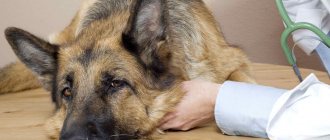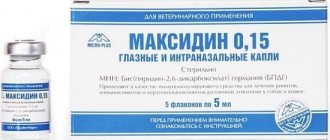When it comes to your pet's health, sometimes the proof is in the stool. Most pets schedule a visit to the vet if their pet's stool suddenly changes in size or consistency. But what about when your dog has black poop? Is black dog poop normal or a cause for concern?
It is extremely important to be aware of the consistency and color of your dog's stool for the sake of its health. Although your dog can't tell us verbally what's wrong with him, by watching you can read the signals if a health problem is occurring. If your dog begins to pass black, tarry stool, this indicates the presence of digested blood in the stool. For stool to turn black, there must be a significant amount of bleeding into the stomach or small intestine. Note that bleeding into the colon or rectum (hematochezia) appears as fresh blood in the stool. Any amount of internal bleeding is a serious concern.
Normal dog poop
The dog has bowel movements 3-4 times a day. If it's less, it's okay. The waste products of a healthy dog range from light to dark brown.
The dog relieves itself
The consistency is moderately dense, without breaks or inclusions. After defecation, feces for some time retain the shape of a smooth “sausage” with a damp sheen and a not strong odor. In circumference, the discharge product is equal to the size of a dog's anus.
It is normal for small fragments of the “sausage” to fall out in the form of circles with the same healthy shine. The owner understands that there is not enough fiber in the diet.
But there are deviations from the norm for dog stool:
- The discharge is formed correctly, but at the end of the bowel movement a liquid mush is poured out - dysbacteriosis or infection is possible.
- There is mucus and blood in the stool - worms or there is a lot of raw meat on the menu.
- There is undigested food in the feces with a sour smell, defecation more than three times a day - it is necessary to establish a balanced diet.
- White coating on hard feces - bones are removed from the diet.
- A dog with black stool is a sign of bleeding internal ulcers. We are talking about damage to the upper gastrointestinal tract or small intestine. The reason may be eating rat poison that the dog found somewhere.
Important! The most life-threatening feces for a pet are liquid feces with bloody foam. Immediately call an ambulance to save the animal.
Sick animal
Diagnostics
Diarrhea often appears suddenly and disappears just as suddenly, but in some cases the cause must be diagnosed. Then you need to show the dog to the doctor. Before visiting a veterinarian, you must undergo tests in advance, including:
- full clinical examination;
- stool analysis necessary to detect possible parasites;
- blood test to detect inflammation, anemia, infection, dehydration;
- blood biochemistry necessary to assess the functioning of the kidneys, liver and pancreas;
- Analysis of urine;
- X-ray of the abdominal cavity to identify possible fluids and foreign bodies;
- PCR is an analysis that detects microbes, bacteria, and parasites.
Depending on the symptoms and general condition of the body, the doctor sometimes recommends other tests, including:
- Bacterial culture, which determines sensitivity to drugs;
- cytological examination, revealing the type of inflammation and the simplest bacteria, as well as parasites;
- analysis for the presence of infections;
- Ultrasound of the abdominal cavity, required if previous tests were not very effective;
- X-ray with a contrast agent, identifying peptic ulcers, foreign substances, obstruction;
- endoscopy, showing the condition of the small and large intestines;
- analysis for the presence of toxic substances.
The main causes of black feces in dogs
Dark stool indicates that the dog is bleeding internally. If the blood comes from the anus or colon, it is scarlet or bright red. But when it is treated with digestive enzymes, it turns black. This means that the cause of bleeding is located deep in the internal organs - the stomach, small intestine.
White poop in a dog: causes of light-colored poop
Serious causes of black feces in dogs:
- Worms. They live on the intestinal mucosa, first destroy it, then get to the animal’s blood. Some of it enters the intestinal cavity and is then excreted.
- Infection. More often it is a parovirus. Blood comes out in clots, feces are unevenly colored.
- Stomach ulcer. A serious illness when black poop is observed in a dog.
- Hemorrhagic gastroenteritis. It occurs as a complication after infections, inflammation of the gastrointestinal tract, due to circulatory disorders.
Important! It is difficult to determine the nature of dark excrement on your own, so contact a veterinarian.
At the veterinarian's appointment
Danger Signals
Melena is not considered a disease, since it is just a symptom of the presence of some pathology. Your veterinarian will be able to determine where the blood is coming from in the intestines.
The dog laps the water
Symptoms of certain diseases
Bleeding could occur due to the following factors:
- the presence of pancreatitis in the animal;
- the occurrence of renal failure in the pet;
- entry into the body of bacteria or viruses;
- the presence of parasites in the dog;
- damage to the gastrointestinal mucosa by a foreign body;
- poisoning the animal's body with toxins.
Treatment depends on the diagnosis. The pet will be prescribed antiparasitic drugs, antacids, and antibiotics. Long-term treatment with antibiotics can lead to disruption of the intestinal microflora, which is why your pet’s stool changes – it becomes different in color and consistency.
Worms are rarely seen in feces because they do not enter the large intestine, but attach to the intestinal walls, which cause damage. Their presence can be diagnosed by analyzing your pet's excrement.
Important! Tumors can cause bleeding. They destroy the tissues of the gastrointestinal tract and disrupt the blood supply to this area. Gradually the tumor is destroyed, which also causes bleeding. Anti-cancer drugs may cause blood in the stool.
Physiological reasons
Yellow poop in a dog: causes of orange poop
There is no need to panic right away. If it is a one-time occurrence, the explanation may be simple. It is possible that the dog was prescribed iron-based medications or vitamin supplements with ferrum during this period. Then the dog’s dark feces will be natural.
Also, the color of stool changes when activated charcoal is given to a dog that is poisoned. The same thing happens if the dog is fed raw meat or blood meal with black licorice is added to the food.
The owners in these cases continue to monitor their four-legged friend. Contact the clinic if other signs of ill health appear: lethargy, fever, refusal to eat.
How to feed your dog during treatment
You may have come across the opinion that if a dog has diarrhea, then you need to put it on a starvation diet for 24 hours. But in this case, food helps heal the intestines by stimulating its cells to work and eliminate damage to the walls if the bleeding is associated with the gastrointestinal tract. Therefore, use fasting only when recommended by your doctor. Do not give potatoes, fats, oils of animal or vegetable origin.
Foods that you can feed your dog after diarrhea should be easily digestible:
- Boiled rice. It is prepared semi-liquid. This paste coats the intestinal walls well and relieves inflammation.
- Shredded boiled chicken.
- Any vegetable baby food. Or boiled pumpkin, carrots.
What did you eat?
A cat has a black nose: causes of discharge and treatment options
During walks, four-legged animals sniff out and pick up inedible things from the floor: plastic objects, stones, sticks. Small puppies are often guilty of this: York terriers, dachshunds, Rottweilers. A sharp foreign object can cut the thin wall of the stomach - hence the blood in the digestive tract and dark stool in the dog. The same condition develops after food poisoning.
You need to watch what your dog puts in his mouth while walking.
The color of the feces depends on the food that the owners offer the animal. Raw liver, other offal, and uncooked meat will give the feces a dark or black color.
Important! There is no reason to worry if the puppy is cheerful, active, with neat fur and clear eyes.
Signs of pathology
A sensitive attitude towards your pet helps to avoid many canine ailments. If, along with dark stools, the dog has changed its behavior, has become apathetic, its eyes become sour, suffers from flatulence, and vomiting appears, contact a specialist.
The following pathologies are accompanied by black feces.
Gastric volvulus
Responsible breeders monitor the diet of their shaggy friends. Animals must eat three times a day. High-quality products and the right amount are easy to digest - dogs do not develop stomach illnesses.
But rare feeding in large portions, long active games immediately after meals, stress sometimes lead to volvulus of the stomach (intestines). At this moment, one of its sections is twisted, and blood flow in it is disrupted. Tissue necrosis begins. The dead part of the intestines provokes blood poisoning.
Important! When your stomach turns upside down, the minutes count. If the dog is not taken to the clinic within two hours, death is inevitable.
You can notice signs of trouble by the following symptoms:
- The dog cannot go to the toilet when absolutely necessary.
- Her stomach is swollen, she whines and nuzzles him.
- The animal does not eat or drink.
- The dog suffers from nausea and vomiting.
Such animals are saved by surgery. The main thing is not to get confused and call for help in time.
Oncological diseases
Stomach cancer, which is accompanied by black liquid feces in dogs, is not a common occurrence. This is the karma of large dogs: collies, terriers, shepherds, bull terriers. Older individuals, more often males, become ill.
Important! Veterinarians do not name the exact cause of the disease. They think it's stress, unhealthy diet, toxins, radiation.
The onset of the disease occurs without specific symptoms. The animal moves less and eats poorly. Owners are alarmed by weight loss, vomiting, belching, and gases with the smell of a rotten egg.
A malignant tumor is diagnosed in the clinic. Treatment often leads to positive results.
Oncological diseases need to be detected early
Manifestation of diarrhea
Indigestion is caused by spoiled foods, helminths, food allergies, gastritis, infections and poisoning, and overeating. The stool becomes liquid and dark in color.
Diarrhea for several hours or one day is normal. The dog is fed less and given a lot of water. But if the condition drags on for several days, the patient is taken to the doctor. The specialist identifies the cause and prescribes treatment. Advice from fellow dog breeders can lead to serious consequences.
Important! Diarrhea is dangerous due to dehydration and metabolic disorders.
Hemorrhoidal bleeding
The dog has prolonged constipation, hard feces with blood, itching and redness around the anus. She tries to reduce discomfort by crawling on the floor on her butt and often licking the anus.
All signs indicate that the pet has hemorrhoids - the hemorrhoidal veins have dilated, and blood has stagnated in them. This ends with the protrusion of the nodes from the anus, or they are localized in the rectum.
Hemorrhoids in a dog
They treat with enemas, suppositories, soft nutrition. The disease is usually easy to treat.
Infectious, toxic gastroenteritis
The causes of the disease are viruses, intoxication, bacteria. The disease is accompanied by striking symptoms: black loose stools, weakness, intestinal colic. The body temperature rises, the pet begins to drool, and the heartbeat quickens. Paws, nose and ears become cold, vomiting bile and blood.
Treatment begins with fasting. The dog is given only a drink, then boiled rice in small portions. The veterinarian prescribes strengthening agents and antibiotics.
Enterocolitis
Acute and chronic forms occur against the background of inflammation in the large and small intestines. The influence is caused by infections and poisoning, an indigestible object in the stomach.
Symptoms:
- fever;
- thin black stool;
- bloating, nausea.
In the chronic course of the disease, the dog loses weight, crawls on the floor, and licks the anus.
Complex treatment includes diet, gastric lavage, and IV drips to restore water balance. Medicines include a course of antibiotics, dewormers, and anti-inflammatory drugs.
Prevention
While it is difficult to prevent every disease your dog may develop, a good management program that covers their health will help. Removing sticks and hard toys that they chew on can prevent any accidents involving swallowing sharp pieces. A healthy diet is still the best preventative measure in practice. Talk to your veterinarian to see what's best for your dog. A varied diet that is as close to the natural state as possible is usually best. Keeping your dog in shape and just below average weight is best for his health. Some dogs may benefit from feeding three meals rather than one large meal as this will minimize the risk of bloat, which can be a dangerous condition.
As gross as it may sound, dog poop is actually a very good window into your dog's overall health. If you notice that your dog's food is black, tar-like, and contains blood, contact your veterinarian immediately. As a pet parent, it's your job to be attentive and proactive about your dog's health, and this can cause significant concern.
When a visit to the vet should not be postponed
If a puppy or adult has dark stool for several days and is accompanied by alarming symptoms, the animal is sent for examination.
Healthy animal
What's alarming:
- admixtures of black blood in the stool (if it is scarlet, the dog has internal bleeding);
- pain in the abdomen, the pet does not allow you to touch it;
- temperature;
- vomit.
The dog's behavior changes: it loses playfulness, refuses to eat, worries, and whines. In many cases, the pet can be restored to its feet, but a competent person must diagnose the disease and treat it.
A dog’s black stool, noticed by the owner, is a reason to take a closer look at the dog. It can be caused by harmless reasons: eating raw meat and liver, a foreign object in the stomach. But if along with it the animal’s general well-being has worsened (vomiting, fever, trembling, refusal to eat), seek qualified help from a specialist.











